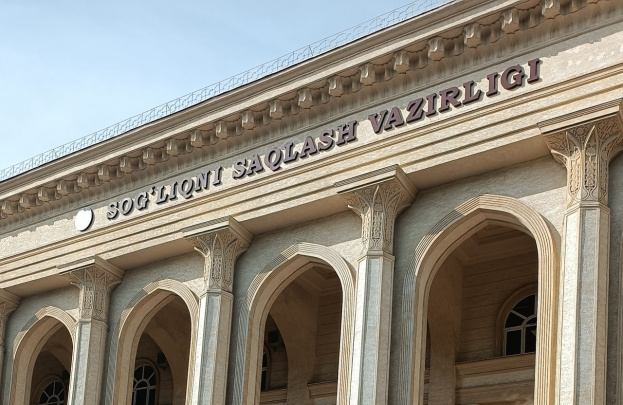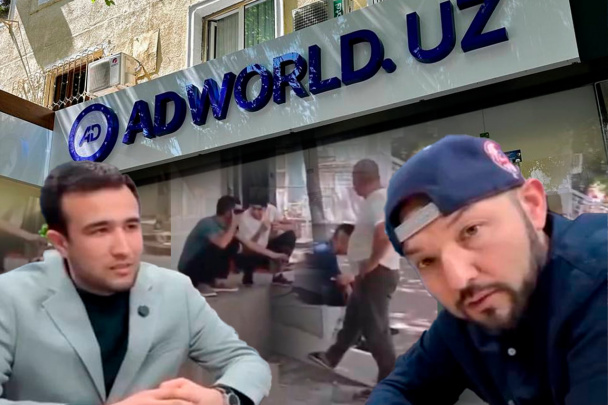“My child is sick, please lend me some money” — A new trick in the scammer’s playbook
“A while later, they called me back and told me that the hospital I had named doesn’t treat children at all. It’s a facility for adults and other specializations. In short, there was no such sick child there.”
In this edition of Kun.uz’s “Life Stories,” we share real accounts of people who were deceived by scammers claiming their child was gravely ill or had passed away in a hospital — just to ask for money.
Case 1
“He started threatening me — said God had already punished me”
I sell small goods near one of the larger mosques in Tashkent. I’m visually impaired and registered as a Group 2 disabled person. That’s how I make a living and support my family.
One day, I was waiting at a bus stop. A young man pulled over in a Spark and offered to give me a lift. He introduced himself as Nodir (name changed). This isn’t uncommon, so I accepted the ride. On the way, he started sharing his troubles — how he and his wife had struggled with infertility for 11 years and had finally had a child, but the baby was born premature at six months and needed to be transferred to a neonatal intensive care unit. He cried as he explained that he couldn’t afford the cost.
He said even his uncle refused to help, questioning whether the baby would even survive. “Even relatives turn their backs in times like this,” he said. “It’s a tough situation for a man.” Eventually, he asked me to lend him $300 until May 5.
He offered to write an IOU, and I took a copy of his passport and driver’s license. He even recorded a video stating that if he failed to repay the loan on time, I could go to the police. He said, “Brother, it’s not you who’s blind — it’s us. None of the sharp-eyed ones ever helped me like you did. Pray for my daughter to recover and live a long life.”
But days passed, and when it was time to repay, he vanished. He didn’t answer calls. On Telegram, he just kept saying, “I’ll pay.” Then he began threatening me — even cursed, saying, “God has already punished you.” I tried to find him at the address listed on his ID, but he wasn’t there. The local neighborhood chairperson told me the man had no wife or child — “He’s not even married,” the chair said.
With no other choice, I filed a report to 102 (the emergency police number) on May 9. Ten days later, I received a reply saying there was no sign of a criminal offense. I then filed a civil claim with the Uchtepa District Civil Court on May 20. Still no response.
These kinds of people know that no real action will be taken against them — so they feel free to scam people like me without consequence.
I don’t like to burden others. Despite my disability, I earn my own living. But that $300 was money I had saved through honest work to pay my wife’s university tuition.
Case 2
“He spoke of Sharia, and promised to write an IOU”
I work at a large company and often participate in charity drives. One day, my mother came home visibly shaken. She said someone needed urgent help. According to her, the driver who had brought her home had a severely ill child and couldn’t afford surgery. She was deeply moved by his story. I told her to give him my number — I’d help if I could.
The next day, the man contacted me. I asked about his situation — what his child was suffering from, which hospital they were in. He talked about being religious, strictly following Sharia, and promised to write an IOU. He said his child was at Hospital No. 17 in Tashkent. I remembered the child’s name and diagnosis.
I immediately contacted some friends working in the healthcare system and asked them to check if any child with that name was receiving treatment there. They called me back shortly and said that hospital doesn’t treat children at all — it’s a facility for adults and other types of patients. In short, no such child was there.
I became suspicious and invited the man to my office the next day. He came, but wouldn’t enter the building — just said, “I’ll take whatever you can give me right here,” and stayed outside. Soon after, he left.
Case 3
“My child died — but I don’t even have money to retrieve the body”
I used to work as the head of the appeals department at a large organization. I was the one who met with visitors. One day, a woman came in crying. She was wearing a headscarf, clearly distraught, her eyes red from tears.
“I came from the Republican Oncology Hospital. My child had cancer. We did everything we could, but nothing worked. We’ve sold everything. My child died, but I don’t even have money to bring the body home. We can’t even hold a proper funeral. Please understand our situation,” she pleaded.
I was torn between pity for her tearful face and heartbreak for her deceased child. I asked which region she was from and her daughter’s name. Her grief was unbearable — the pain of a mother who just lost her child. I was moved and said, “Wait a moment.” I went inside, took what money I had, and explained the situation to my colleagues. Everyone chipped in — we raised a good amount and gave it to her.
Even after she left, I couldn’t shake the image from my mind. Suddenly, I remembered the Health Workers’ Union — maybe they could help too. I contacted them and explained the case — a girl from Jizzakh had reportedly died in the Oncology Hospital. But they didn’t believe it. “There’s been no such incident recently,” they said. “In such cases, patients are usually discharged to spend their final days at home. Deaths in the hospital are rare. In fact, we’ve had no recent death cases at all.”
I was stunned. Should we trust people or not?”
Sadly, these cases not only erode trust between people but also cast doubt on religious beliefs. Those who fall victim to such fraud later become hesitant to help those truly in need.
Related News

19:15 / 08.08.2025
Health Ministry warns public about rise in unlicensed medical practitioners

14:26 / 07.08.2025
ADWorld accused of defrauding clients over foreign work and visa services

17:09 / 06.08.2025
Thousands in Uzbekistan opt for voluntary credit ban after rise in loan scams

13:04 / 04.08.2025



